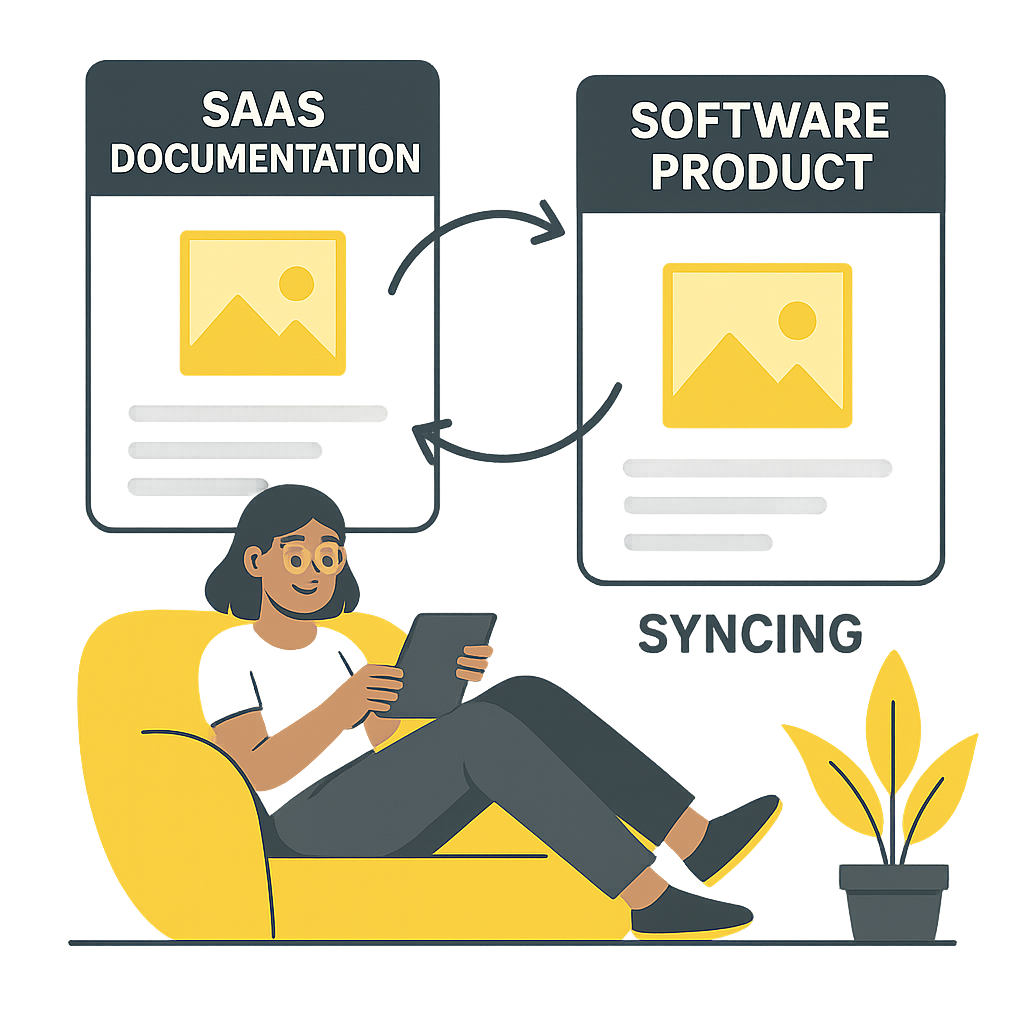Automate Screenshot Workflows with Zapier + FreshShots: Connect 5000+ Apps

Zapier connects over 5000 apps together, and now you can add automated screenshot generation to any workflow. Whether you’re updating Notion docs, sending Slack notifications, or creating client reports, FreshShots + Zapier eliminates manual screenshot work and keeps your visuals always current.
Why FreshShots + Zapier is a Game-Changer
Zapier’s automation power combined with FreshShots’ screenshot intelligence creates endless possibilities:
- Trigger anywhere: App deployment, CMS updates, calendar events, form submissions
- Update everywhere: Notion, Slack, Google Docs, Airtable, Trello, and 5000+ more
- No-code automation: Build complex workflows without technical expertise
- Real-time updates: Screenshots generate and distribute automatically
- Cross-platform consistency: Same screenshots across all your tools
Popular FreshShots + Zapier Integration Patterns
Pattern 1: Documentation Auto-Update
Trigger: GitHub deployment → Action: Update Notion/Confluence screenshots
Pattern 2: Client Communication
Trigger: Screenshot complete → Action: Send Slack notification + email update
Pattern 3: Project Management
Trigger: Milestone reached → Action: Update Trello cards with fresh screenshots
Pattern 4: Content Marketing
Trigger: Blog post published → Action: Generate and embed product screenshots
Pattern 5: Customer Support
Trigger: Feature release → Action: Update help desk articles with current UI
Setting Up FreshShots with Zapier
Step 1: Connect FreshShots to Zapier
- In Zapier: Search for “Webhooks by Zapier”
- Choose Trigger: “Catch Hook”
- Copy webhook URL: Zapier provides a unique URL
- In FreshShots: Add webhook URL to your workflow settings
Step 2: Configure FreshShots Webhook
In your FreshShots workflow, add webhook configuration:
{
"workflow_settings": {
"webhook_url": "https://hooks.zapier.com/hooks/catch/123456/abcdef/",
"webhook_events": ["workflow_completed", "screenshot_ready"],
"webhook_data": {
"project_name": "My App Documentation",
"environment": "production",
"screenshot_count": "dynamic"
}
}
}
Step 3: Test the Connection
Create a simple test workflow:
[
{
"action": "visit_page",
"url": "https://your-app.com"
},
{
"action": "take_screenshot",
"selector": "main-content",
"save_screenshot_to": "test-screenshot.png"
}
]
When this runs, Zapier receives:
{
"event": "workflow_completed",
"project_name": "My App Documentation",
"screenshot_urls": [
"https://cdn.freshshots.io/1/test-screenshot.png"
],
"timestamp": "2025-01-15T10:30:00Z"
}
Complete Integration Blueprints
Blueprint 1: Auto-Update Notion Documentation
Scenario: Update Notion pages when app is deployed
Zapier Setup:
- Trigger: Webhook from FreshShots
- Filter: Only when
event = "workflow_completed" - Action: Update Notion page
Zapier Configuration:
Trigger: Webhooks by Zapier - Catch Hook
Filter: Event equals "workflow_completed"
Action: Notion - Update Page
- Page ID: {{your_notion_page_id}}
- Properties:
- Screenshot: {{screenshot_urls[0]}}
- Last Updated: {{timestamp}}
- Status: "Current"
Blueprint 2: Slack Team Notifications
Scenario: Notify team when documentation screenshots are updated
Zapier Setup:
Trigger: Webhooks by Zapier - Catch Hook
Action: Slack - Send Channel Message
- Channel: #documentation
- Message: "📸 Screenshots updated for {{project_name}}
🔗 View: {{screenshot_urls[0]}}
⏰ Updated: {{timestamp}}"
Blueprint 3: Automated Client Reports
Scenario: Generate weekly client reports with fresh screenshots
Zapier Setup:
Trigger: Schedule by Zapier - Every Monday 9 AM
Action 1: Webhooks by Zapier - POST
- URL: https://api.freshshots.io/v1/run/123
- Headers: x-api-key: {{freshshots_api_key}}
Action 2: Delay by Zapier - 5 minutes
Action 3: Google Docs - Create Document from Template
- Template: Client Report Template
- Replace: {{screenshot_placeholder}} with latest URLs
Action 4: Gmail - Send Email
- To: [email protected]
- Subject: Weekly Progress Report
- Attachment: {{google_doc_url}}
Blueprint 4: Multi-Platform Documentation Sync
Scenario: Update screenshots across Notion, Confluence, and GitHub Wiki
Zapier Setup:
Trigger: Webhooks by Zapier - Catch Hook
Action 1: Notion - Update Database Item
- Database: Documentation Screenshots
- Screenshot URL: {{screenshot_urls[0]}}
Action 2: HTTP by Zapier - PUT
- URL: https://your-confluence.atlassian.net/wiki/api/v2/pages/{{page_id}}
- Headers: Authorization: Bearer {{confluence_token}}
- Body: Updated page content with new screenshot
Action 3: GitHub - Create or Update File
- Repository: docs
- File Path: images/{{screenshot_name}}
- Content: {{screenshot_content}}
Advanced Automation Workflows
Conditional Screenshot Updates
Only update screenshots when specific conditions are met:
Multi-Step Zapier Workflow:
1. Trigger: GitHub - Push to Repository
2. Filter: Only continue if branch = "main"
3. Code by Zapier:
const shouldUpdate = inputData.commits.some(commit =>
commit.message.includes('[update-docs]')
);
return { should_update: shouldUpdate };
4. Filter: Only continue if should_update = true
5. Webhooks by Zapier - POST to FreshShots API
Error Handling and Retry Logic
Handle screenshot failures gracefully:
1. Trigger: Webhooks by Zapier - Catch Hook
2. Filter: Only continue if event = "workflow_failed"
3. Action: Slack - Send Message
Message: "⚠️ Screenshot generation failed for {{project_name}}
🔄 Retrying in 10 minutes..."
4. Delay: 10 minutes
5. Webhooks by Zapier - POST (retry FreshShots workflow)
Dynamic Content Integration
Update screenshots when CMS content changes:
1. Trigger: Webflow - Item Published
2. Delay: 30 seconds (let CDN update)
3. Webhooks by Zapier - POST
URL: https://api.freshshots.io/v1/run/123
Body: {
"trigger": "cms_update",
"item_id": "{{webflow_item_id}}",
"collection": "{{webflow_collection}}"
}
4. Delay: 2 minutes (let screenshots generate)
5. Notion - Update Page
Properties:
- Screenshot: Updated automatically
- Content ID: {{webflow_item_id}}
E-commerce and Marketing Automations
Product Launch Coordination
Scenario: Coordinate screenshots across multiple platforms when launching a product
1. Trigger: Shopify - Product Published
2. Webhooks by Zapier - POST to FreshShots
Body: {
"product_id": "{{shopify_product_id}}",
"workflow_type": "product_launch"
}
3. Delay: 3 minutes
4. Mailchimp - Create Campaign
Subject: "New Product: {{product_name}}"
Content: Include {{screenshot_urls}}
5. Facebook Pages - Create Post
Message: "Check out our new product!"
Photo: {{screenshot_urls[0]}}
6. Twitter - Create Tweet
Status: "New product launch 🚀 {{screenshot_urls[0]}}"
A/B Testing Documentation
Scenario: Document different versions for A/B tests
1. Trigger: Optimizely - Experiment Started
2. Code by Zapier:
// Generate different screenshot workflows for each variation
const variations = inputData.variations;
return variations.map(v => ({
workflow_id: `ab_test_${v.id}`,
variation_name: v.name
}));
3. Loop: For each variation
Webhooks by Zapier - POST to FreshShots
Body: {
"workflow_id": "{{workflow_id}}",
"ab_test_id": "{{experiment_id}}",
"variation": "{{variation_name}}"
}
Customer Support Integrations
Help Desk Auto-Updates
Scenario: Update support articles when UI changes
1. Trigger: Zendesk - Ticket Tagged "ui-update"
2. Webhooks by Zapier - POST to FreshShots
Body: {
"trigger": "support_update",
"ticket_id": "{{ticket_id}}",
"affected_features": "{{ticket_description}}"
}
3. Delay: 5 minutes
4. Zendesk - Update Article
Body: Replace outdated screenshots with {{screenshot_urls}}
5. Slack - Send Message
Channel: #customer-support
Message: "📚 Help article updated with fresh screenshots
🎫 Related to ticket: {{ticket_id}}"
User Feedback Integration
Scenario: Generate screenshots based on user feedback
1. Trigger: Typeform - New Response
2. Filter: Only if feedback_type = "ui_confusion"
3. Code by Zapier:
const confusedPage = inputData.confused_about_page;
return { page_url: confusedPage };
4. Webhooks by Zapier - POST to FreshShots
Body: {
"page_url": "{{page_url}}",
"trigger": "user_feedback",
"priority": "high"
}
5. Notion - Create Page
Title: "User Feedback - UI Update Needed"
Content: Include {{screenshot_urls}} and feedback details
Quality Assurance Workflows
Automated QA Screenshots
Scenario: Generate screenshots for QA review before releases
1. Trigger: GitHub - Pull Request Opened
2. Filter: Only if PR has label "needs-qa"
3. Webhooks by Zapier - POST to FreshShots
Body: {
"environment": "staging",
"pr_number": "{{pull_request_number}}",
"workflow_type": "qa_review"
}
4. Delay: 3 minutes
5. GitHub - Create Issue Comment
Body: "🔍 QA Screenshots Generated:
{{screenshot_urls}}
Ready for review!"
6. Slack - Send Message
Channel: #qa-team
Message: "🧪 New PR ready for QA review with fresh screenshots"
Visual Regression Testing
Scenario: Compare screenshots across deployments
1. Trigger: Heroku - App Deployed
2. Webhooks by Zapier - POST to FreshShots
Body: {
"deployment_id": "{{deployment_id}}",
"environment": "production",
"comparison_mode": true
}
3. Delay: 5 minutes
4. Code by Zapier:
// Compare with previous screenshots
const currentUrls = inputData.screenshot_urls;
const previousUrls = inputData.previous_screenshots;
return { has_changes: currentUrls !== previousUrls };
5. Filter: Only continue if has_changes = true
6. Slack - Send Message
Channel: #dev-team
Message: "⚠️ Visual changes detected in production
📸 Compare: {{screenshot_urls}}"
Monitoring and Analytics
Screenshot Analytics
Scenario: Track screenshot usage and effectiveness
1. Trigger: Webhooks by Zapier - Catch Hook (from FreshShots)
2. Google Sheets - Create Row
Sheet: Screenshot Analytics
Data:
- Timestamp: {{timestamp}}
- Project: {{project_name}}
- Screenshot Count: {{screenshot_count}}
- Workflow Duration: {{duration}}
3. Filter: Only if screenshot_count > 10
4. Slack - Send Message
Channel: #analytics
Message: "📊 High screenshot volume detected: {{screenshot_count}} images"
Performance Monitoring
Scenario: Monitor screenshot generation performance
1. Trigger: Webhooks by Zapier - Catch Hook
2. Filter: Only if event = "workflow_completed"
3. Airtable - Create Record
Table: Performance Metrics
Fields:
- Workflow ID: {{workflow_id}}
- Duration: {{duration_seconds}}
- Success Rate: {{success_rate}}
- Error Count: {{error_count}}
4. Filter: Only if duration_seconds > 300
5. PagerDuty - Create Incident
Title: "FreshShots Slow Performance"
Description: "Workflow taking longer than 5 minutes"
Best Practices for Zapier + FreshShots
Workflow Organization
Use descriptive naming:
- ✅ “Update Notion Docs After Deployment”
- ❌ “Webhook to Notion”
Add explanatory descriptions:
This Zap automatically updates our product documentation in Notion
whenever we deploy to production. It ensures our screenshots are
always current with the live application.
Error Handling
Always include error paths:
1. Trigger: Webhooks by Zapier
2. Try: Main workflow actions
3. Catch: Error handling
- Log to Google Sheets
- Send Slack notification
- Create retry schedule
Rate Limiting
Respect API limits:
- Add delays between API calls
- Use batch operations when possible
- Monitor usage in Zapier dashboard
Security Best Practices
Protect sensitive data:
- Use Zapier’s built-in storage for API keys
- Avoid logging sensitive information
- Implement webhook signature verification
Troubleshooting Common Issues
Webhook Not Triggering
Check these items:
- Webhook URL is correct in FreshShots
- Zapier webhook is active and published
- FreshShots workflow is actually running
- Network connectivity issues
Screenshot URLs Not Working
Possible causes:
- CDN propagation delay (wait 1-2 minutes)
- Image format not supported by destination app
- URL formatting issues in Zapier
Timing Issues
Solutions:
- Add appropriate delays between actions
- Use “Wait for Webhook” instead of fixed delays
- Implement retry logic for failed actions
Data Formatting Problems
Common fixes:
- Use Zapier’s formatter tools
- Implement custom code steps for complex transformations
- Validate data structure before sending to destination apps
Getting Started Guide
Quick Setup (15 minutes)
- Sign up for Zapier (free plan available)
- Create FreshShots account if you haven’t already
- Create your first Zap:
- Trigger: Webhooks by Zapier - Catch Hook
- Action: Your preferred app (Slack, Notion, etc.)
- Configure FreshShots webhook with Zapier URL
- Test the integration with a simple workflow
- Expand to additional use cases
Integration Checklist
- Plan your automation: Map out trigger → action flows
- Set up webhooks: Connect FreshShots to Zapier
- Test basic workflow: Ensure data flows correctly
- Add error handling: Plan for failure scenarios
- Configure notifications: Know when things work or break
- Document workflows: Help team understand automations
- Monitor performance: Track success rates and timing
- Scale gradually: Start simple, add complexity over time
Advanced Integration Ideas
Multi-Platform Content Distribution
Automatically distribute screenshots to WordPress, Medium, and social media
Competitive Analysis Automation
Schedule competitor screenshot monitoring and analysis
User Onboarding Optimization
Update onboarding flows with current product screenshots
Sales Enablement
Automatically update sales collateral with product screenshots
API Documentation Sync
Keep API documentation screenshots current with actual endpoints
Ready to supercharge your workflow? Start your free Zapier account and connect FreshShots to 5000+ apps. Automate screenshot management across your entire tech stack.
Need help building custom Zapier integrations for your specific workflow? Contact our team for expert guidance and advanced automation strategies.

